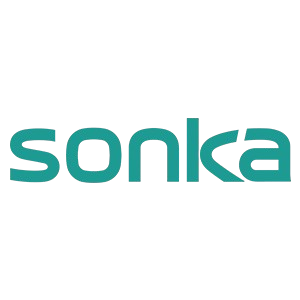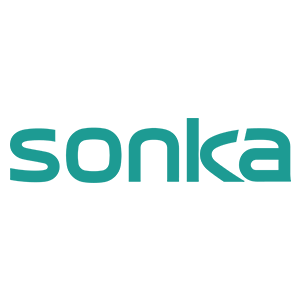Självbetjäningskiosker inom hälso- och sjukvård är automatiserade lösningar som utvecklats för att förenkla patientinteraktioner i hälso- och sjukvårdsinställningar. Dessa kiosker låter patienter hantera uppgifter som check-in och check-out, boka tidningar, bearbeta betalningar och till och med genomföra hälsoscreeningar utan direkt personalassistering. Genom att underlätta dessa interaktioner förbättrar kioskarna effektiviteten och minskar väntetiderna i hälso- och sjukvårdseinstitutioner.
Dessa kiosker finns i olika former och är utrustade med en rad funktioner. Nyckelfunktionerna omfattar patientregistrering, försäkringsverifiering, betalningsbearbetning och insamling av hälsodata via biometriska enheter. Check-in-kiosker integreras till exempel med elektroniska journalsystem (EHR) för att förenkla datamanagement, vilket minskar den administrativa bördan på personalen. Införandet av hälsovetenskapliga kiosker ökar, drivet av behovet att förbättra patientengagemang och operativ effektivitet. Enligt en nyligen utförd studie förväntas användningen av självbetjäningskiosker inom hälso- och sjukvården växa med 15% årligen de närmaste fem åren.
Införandet av avancerad teknik i hälso- och sjukvårdskiosker möjliggör en personlig användarupplevelse. Dessa system kan anpassas för att tillgodose specifika patientbehov, med anpassade gränssnitt och funktioner. Denna teknologiska utveckling förbättrar inte bara patientnöjet, utan underlätter också en mer effektiv tjänsteverksamhet, vilket är avgörande när hälso- och sjukvårdssektorn står inför ökade krav.
Självbetjäningskiosker spelar en avgörande roll i att förenkla patientregistreringsprocessen genom att minska väntetider och lägga mindre administrativ börda på personalen. Dessa kiosker låter patienter snabbt hantera sin registrering, uppdatera personlig information och göra betalningar oberoende, vilket frigör hälsovårdspersonalen att fokusera på att leverera högkvalitativ patientvård. Genom att hantera uppgifter som registreringar elektroniskt minskar kioskerna avsevärt de flaskhalsar som vanligtvis uppträder vid receptioner.
Statistik visar effektiviteten hos kiosker och avslöjar att anläggningar som infört dem uppnått tidssparnis på upp till 70% under incheckningsprocesser. En undersökning inom hälso- och sjukvården noterade att mer än hälften av patienterna föredrog kiosker framför traditionella pappersblanketter, vilket pekar på en ökning av hastighet och bekvämlighet. Således leder en omfattning av dessa teknologier till mer effektiv patientflöde och förbättrar den totala patientupplevelsen.
Kiosker förbättrar också data noggrannheten och registreringen genom att minska mänskliga fel i inmatningsprocesser. Genom att låta patienter mata in och verifiera sina data säkerställer dessa system att information som kontaktuppgifter och medicinhistoria är uppdaterad och korrekt. Denna direktinmatning av data minskar inte bara risken för transkriptionsfel, som är vanliga vid manuell datainmatning, utan bidrar också till bättre patientutkomster. Expertopinioner bekräftar att precist datainsamling är avgörande för effektiv diagnos och behandlingsplanering, vilket gör kiosker till en nödvändig komponent i modern vårdverksamhet.
Selvbetjäningskiosker spelar en avgörande roll i att förbättra patientupplevelsen genom att markant minska väntetiderna, vilket direkt bidrar till högre nöjesgrad. När patienter kan checka in, boka tid och verifiera försäkring utan långa köer blir deras besök mer effektivt och mindre frustrerande. Enligt en rapport på Nature.com har selvbetjäningskiosker minskat inträdestider i akutmottagningar med nästan 25%, vilket visar den djupa påverkan på minskad väntetid.
Dessutom ger dessa kiosker patienter mera makt genom att främja självständighet vid hantering av sina hälsoomsorgsinteraktioner. Patienter kan uppdatera personlig information, boka tid och komma åt provresultat själva. Denna känsla av kontroll förstärker inte bara patienters självförtroende, utan minskar också beroendet av sjukhuspersonal för rutinmässiga administrativa uppgifter. En studie från National Library of Medicine understryker att denna självständighet betydligt höjer patientnöjespoängen.
Enkäter har visat konsekvent att patienternas nöjdhetsnivåer är högre på anläggningar som infört självbetjäningskiosker. Patienterna uppskattar effektiviteten och bekvämligheten som dessa teknologiska lösningar erbjuder, vilket leder till förbättrade övergripande bedömningar av hälso- och sjukvårdsanläggningen. Detta understryker hur integrationen av självbetjäningskiosker kan skapa en patientcentrerad vårdmiljö, som uppfyller moderna patienters förväntningar på hastighet, noggrannhet och bekvämlighet.
Självbetjäningskiosker är utrustade med flerspråkig stöd, vilket säkerställer tillgänglighet för diversa befolkningsgrupper. Denna funktion är avgörande i hälso- och sjukvårdssammanhang där kommunikation kan vara ett hinder, särskilt för icke-inrikesfödda. Genom att erbjuda flera språkval, hjälper dessa kiosker patienter att förstå sin medicinska information och valmöjligheter, vilket främjar bättre kommunikation med hälso- och sjukvårdspersonalen.
Tillgänglighetsfunktioner för patienter med funktionsnedsättningar är avgörande för självbetjäningskioskers inklusivitet. Dessa kiosker inkluderar ofta alternativ som röstassistering, skärmläsare och justerbara höjdinställningar för att möta olika behov. Sådana anpassningar gör det möjligt för alla patienter, oavsett fysiska eller kognitiva begränsningar, att oberoende hantera sin vård, i linje med inklusionsstandarder och främja lika tillgång till hälsovårdstjänster.
Tidigdataintegration är en annan viktig funktion hos självbetjäningskiosker, vilket säkerställer att patientinformation uppdateras och är tillgänglig direkt. Genom att synkronisera med elektroniska journaler ger dessa kiosker hälso- och sjukvårdspersonal uppdaterad patientdata, vilket minskar fel och förbättrar kliniskt beslutsfattande. Denna förmåga förbättrar inte bara arbetsflödes-effektiviteten, utan säkerställer också kontinuiteten i vården, eftersom personalen har omedelbar tillgång till den information de behöver för att leverera högkvalitativa hälsovårdstjänster.
Self service-kiosker inom hälso- och sjukvården har revolutionerat patientinteraktionen i vården. Dessa innovativa lösningar förenklar processer genom att möta en mängd olika patientbehov. Låt oss dyka in i specifika modeller som finns på marknaden idag.
Den Patientincheckningssystem inom vården Medicinsk hälsokontrollvåg Självbetjäningshälsokioskmaskin erbjuder en omfattande lösning för patientregistreringar. Det integrerar en self service-hälsoutvärderingsfunktion, vilket ger korrekt BMI och kroppskompositiondata. Detta system hjälper patienter att förstå sin hälsa bättre och uppmuntrar till aktiv hälsahantering.
Den 2022 SONKA Self Service Vending Maskiner Kroppsanalysator kombinerar bekvämlighet med hälsoindikatorer. Den inkluderar verktyg för kroppsanalys, bland annat blodsocker- och urintester, vilket främjar effektiv hälsöövervakning i offentliga utrymmen som sjukhus. Enhens förmåga att mäta vitala tecken samtidigt på sekunders nivå gör det unikt.
Den Sjukhus Medicinsk Klinik Selvservice Hälsa Vägningsstation är avgörande för att underlätta hälsoskanningar med sin användarvänliga gränssnitt för vikt-, längd- och kroppsdagnostik. Denna enhet hjälper vårdpersonalen genom att förenkla patientdatakonsekvens.
Den BMI Höjd Vikt Self Service Smart Supermarket Maskin lägger till värde till hälsovetenskapen genom att säkerställa grundliga fitnessutvärderingar via automatiserade BMI-läsningar. Dess användning sträcker sig över sjukhus och apotek, vilket erbjuder flexibilitet i en mängd olika hälsovetenskapliga miljöer.
Den Self Service Medicinsk Hälsovård Terminal möjliggör multioppgiftshantering vid hälsokontroller, från blodtrycksövervakning till omfattande hälsoutvärderingar. Dess intuitiva design och avancerade funktioner gör det idealiskt för moderna hälsovetenskapliga sammanhang.
Dessa produkter förstärker kollektivt hälso- och sjukvårdslivet genom att förbättra tillgängligheten, minska väntetiderna och säkerställa noggrann hälsoutvärdering, vilket bekräftar deras oumbärliga roll i modern hälso- och sjukvårdssamhälle.
Att införa kioskteknik inom hälso- och sjukvården följs av tekniska integrationsproblem. Hälso- och sjukvårdsgivare stöter ofta på kompatibilitetsproblem med befintliga programvarusystem, vilket kan orsaka problem med datasyncronisering. Underhåll av kioskerna kräver också regelbundna uppdateringar och felsökning för att hålla pace med utvecklingen av tekniska normer och förhindra driftstopp. Tekniska specialister måste arbeta tätt med kioskleverantörerna för att se till att dessa system fungerar smidigt inom anläggningens IT-infrastruktur, vilket underlättar en smidig användarupplevelse.
Att ta hänsyn till användarupplevelse och tillgänglighetsfrågor är avgörande för att säkerställa att alla patienter, oavsett teknisk förtrogenhet eller fysiska förmågor, kan använda sjukvårdsautomater effektivt. Till exempel är intuitiva användargränssnitt med touchvänliga design och text-till-tal-funktioner viktiga för patienter med synnedsättningar eller de som känner sig otillräckligt bekväma med digitala gränssnitt. Dessa funktioner bidrar till att maximera automaten användbarhet och nå en bredare patientgrupp, därmed uppfylla dess roll i att förbättra tillgängligheten till hälsovård.
Branschinsikter tyder på att att möta dessa utmaningar kräver en flerfacetterad ansats. Samarbete mellan IT-experter, hälso- och sjukvårdsgivare och kiosktillverkare är avgörande. Anpassade programvarulösningar som är flexibla och skalbara kan hantera kompatibilitetsproblem, medan regelbunden personalutbildning kan säkerställa effektiv användning och underhåll av kioskerna. Som Salwa Al-Tahan från Sodaclick påpekar, kan införandet av avancerade teknologier som röst-AI ytterligare förbättra kioskerna, vilket tillåter handfria operationer och minimal patientkontakt, därmed erbjudande en realistisk lösning i ljuset av de växande kraven inom hälso- och sjukvården.
Framtiden för självbetjäningskiosker inom hälso- och sjukvård är på väg att revolutioneras av pågående innovationer som biometrisk identifikation och maskininlärning. Dessa framsteg löfter att bringa mer personaliserade och säkra patientinteraktioner. Till exempel kommer biometrisk identifikation att göra det möjligt för kiosker att autentisera patienter snabbt, minimera bedrägerier och förbättra patientkonfidentiellhet. Maskininlärning kan användas för att förutsäga patientbehov och förenkla processer som check-in och bokningar.
Telemedicin och fjärrövervakningstekniker påverkar djupt utvecklingen av självbetjäningskiosker. Den globala telemedicinsmarknaden upplever en explosiv tillväxt, med uppskattningar som indikerar en årlig tillväxtsats över 15% de senaste åren. Självbetjäningskiosker integreras med telemedicinsplattformar, vilket låter patienter enkelt komma åt fjärrkonsultationer, skicka in medicinska data och till och med hantera recept.
Åt framåt förväntas självbetjäningskiosker revolutionera patientinteraktioner med hälso- och sjukvårdstjänster. Framtidstrender kan omfatta kiosker utrustade med artificiell intelligens för att tillhandahålla medicinsk information och bistå vid beslutsfattande. När fler hälso- och sjukvårdsgivare inför dessa teknologier kan patientresan förändras betydligt, vilket minskar administrativa uppgifter och låter hälso- och sjukvårdspersonal fokusera mer på patientomsorg. Dessa innovationer kommer att vara avgörande för att förbättra patientsatisfaction och operativ effektivitet inom hälso- och sjukvårdssystemen.


Copyright © 2025 by Shenzhen Sonka Medical Technology Co., Limited - Privacy policy